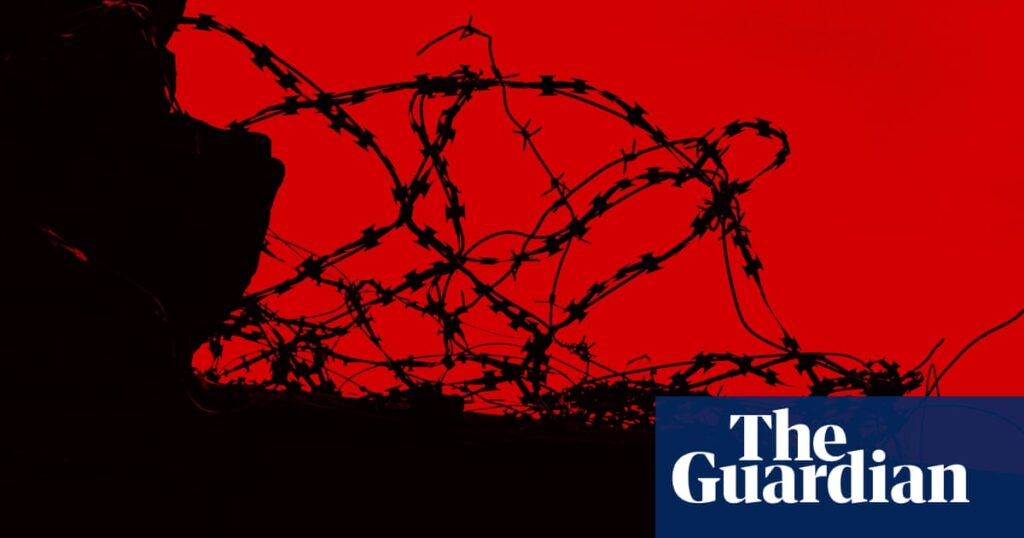Several inmates at Virginia’s maximum-security Red Onion State Penitentiary intentionally set themselves on fire to protest the facility’s harsh conditions.
A written statement from the Virginia Department of Corrections acknowledged that men incarcerated at the prison had self-harmed, but officials confirmed six incidents but said 12 people were injured. There are also reports of.
“In recent months, six inmates at Red Onion State Prison have self-immolated using improvised devices made from electrical outlets,” Virginia Department of Corrections Director Chad Dotson said in a written statement.
Earlier this week, Virginia Governor Glenn Youngkin also acknowledged the protests and said injuries were being investigated.
“I think part of the investigation is understanding how the incident happened and why it happened,” Yonkin said. “We have discussed these situations with the Department of Corrections.”
Dotson added that some of the injured were treated for burns at the Department of Corrections’ “secure medical facility,” while others “did not require outside treatment.” All six were referred to mental health staff “for treatment,” Dotson said.
“To be clear, these inmates did not commit arson or self-immolation, as some reports have absurdly suggested,” he said in a statement.
Dotson also said, “The recent spate of reporting on Red Onion is a malicious attempt to score cheap political points by advocacy groups promoting prison abolition and policies that make Virginians less safe. This is nothing but an effort.”
Dotson’s announcement follows incarcerated journalist Kevin “Rashid” Johnson, who first brought attention to self-harm in state facilities in October through his work with the nonprofit activist group Prison Radio. This was done after the news was reported.
Mr. Johnson reported meeting a person named Ekon Esiette in September. He claimed to have returned from the hospital the previous day after being treated for self-inflicted burns. Johnson said on Prison Radio that Essiette told him that “the racism, abuse, harsh and inhumane conditions at Red Onion were so intolerable that he and others were desperately trying to get him removed from prison.” “In an effort to self-immolate,” Johnson said.
About a week later, Prison Radio also released an audio recording of Ekon Esiette, in which he talked about how he began his hunger strike after returning from treatment for his burns. He said he was protesting “discrimination” and that he has to deal with it every day at Red Onion.
“I think I’m approaching this the right way, the same way I go about hunger strikes,” Esiette said. “But I don’t mind setting myself on fire again if I have to. This time I’ll set my whole body on fire before I stay here and spend the rest of my time here. I’ll die before I stay here.” That’s better, because I face discrimination every day, whether it’s because of my race, my last name, or my religion.”
Johnson, an imprisoned journalist, was placed in solitary confinement in early November, shortly after his self-harm incident first drew attention, Al Jazeera reported.
Prison Radio founder Noel Hanrahan said in an interview that he had spoken to Mr Johnson’s lawyer and was told that Mr Johnson had been placed in solitary confinement.
Mr. Johnson’s initial report on Prison Radio said he had heard of 12 men who self-immolated with red onions, but Mr. Dotson confirmed only six.
“We are confident in the basis of this story. The numbers are still being investigated,” Hanrahan said.
A group of legislators from the Virginia Legislative Black Caucus (VLBC) released a statement on X condemning the situation at Red Onion.
“VLBC is horrified by recent reports that incarcerated individuals attempted self-immolation in response to poor and inhumane conditions at the Red Onion State Supermax Prison in Wise County, Virginia. ” the group said in a statement. “These self-immolations are a desperate cry for help.”
In a statement, the caucus claimed: “People incarcerated at Red Onion State Prison testify that they regularly suffer racial and physical abuse from prison staff, medical neglect, including withholding of medication, and excessive stays in solitary confinement.” For days, inedible food was covered in maggots and police spit, and there were violent attacks by dogs. ”
A group of lawmakers announced that “at least 12” black men had self-immolated in protest.
A Human Rights Watch report from more than 20 years ago said red onions “raise serious human rights concerns.”
In a written statement to the Guardian following the six arson attacks, Virginia Sen. Barbara Favola said the Department of Corrections “must operate our prisons in a safe, humane and rehabilitative manner. ” he said.
“I encourage the governor to order an independent investigation into these allegations,” Favola said.
Dotson said in a statement that the Department of Corrections had invited “all members of Congress” to visit Red Onion State Prison multiple times.
“Specifically, we sent a personal invitation to all members of Congress on Tuesday following a statement from the Virginia Legislative Black Caucus,” Dotson said.
Miriam Nemeth, deputy litigation attorney at Right Behind Bars, a Washington, D.C.-based advocacy group, represented Mr. Johnson, who first wrote about the protests from prison. He also told the Guardian that he was placed in solitary confinement on November 4. .
She accused the prison of carrying out “endless retaliation” for Mr Johnson’s “efforts to speak out”. Nemeth said she was unable to speak to Johnson at this time and was told by authorities that she had received threats against him and was placed in isolation for her own safety.
The Guardian reached out to the Virginia Department of Corrections for comment on this aspect of Johnson’s situation, but did not receive a response prior to publication.



